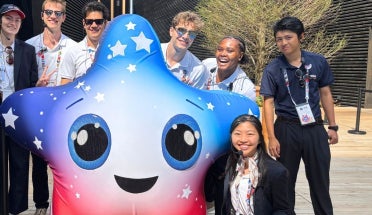
Cameron Goff, Class of 2019: From Internship Abroad to Medical School
- May 10, 2019
- Education Abroad
Cameron Goff is now a step closer to achieving his dream of becoming a doctor. After walking across the graduation stage in May with a degree in biochemistry, Goff will start his journey as a medical student at the Baylor College of Medicine, and his experiences abroad helped him get there.
In 2018, Goff participated in an international internship program in Barcelona through Texas Global, interning for a private hospital in the city. That experience helped him to familiarize himself with the global healthcare system and gave him an edge during the medical school application process.
We asked Goff about his experiences at UT, his experiences abroad, how they impacted him as a student and how they will impact his career as a healthcare professional.
Cameron, where are you from and what did you study? Why did you choose your major?
I’m from Austin and I’m studying biochemistry. I liked chemistry and biology in general, so combining those two into biochemistry definitely made sense to me. And I was also really interested in going into medicine. So, I thought biochemistry was a good a segue to medical school and not only had all the requirements that I needed but also something I was interested in.
What made you want to go to medical school?
It's kind of a long story. I've had to write many essays over that. Medicine mixes the aspects of science I really liked – I was really just fascinated about the human body and all its functions – but also working with people. I didn't want to just be working by a lab bench all day for my career. I want to do something where I was interacting with people and I can see the impact that my work had on the world and the community. And so, having that a personal connection and being able to interact with people as a doctor definitely interests me while also still having that science background.
Why were you interested in interning abroad in Spain?
I've always liked traveling. I've done other international programs before. I've been to Ecuador a couple of times and I've been to Europe with my family. And from when I got to UT, I knew at some point I wanted to study abroad in Spain to practice my Spanish. And so, I was just thinking, “When could I do that?” And it just ended up that after my junior year during the summer would probably be the best time.
I did the internship program because I didn't really need any classes, and the program was so flexible with what you could do that I was able to ask them if I could do something health-related or public health, medicine, or just something in that vein. They were able to find me a placement at a private hospital in Spain.
"I want to do something where I was interacting with people and I can see the impact that my work had on the world and the community."
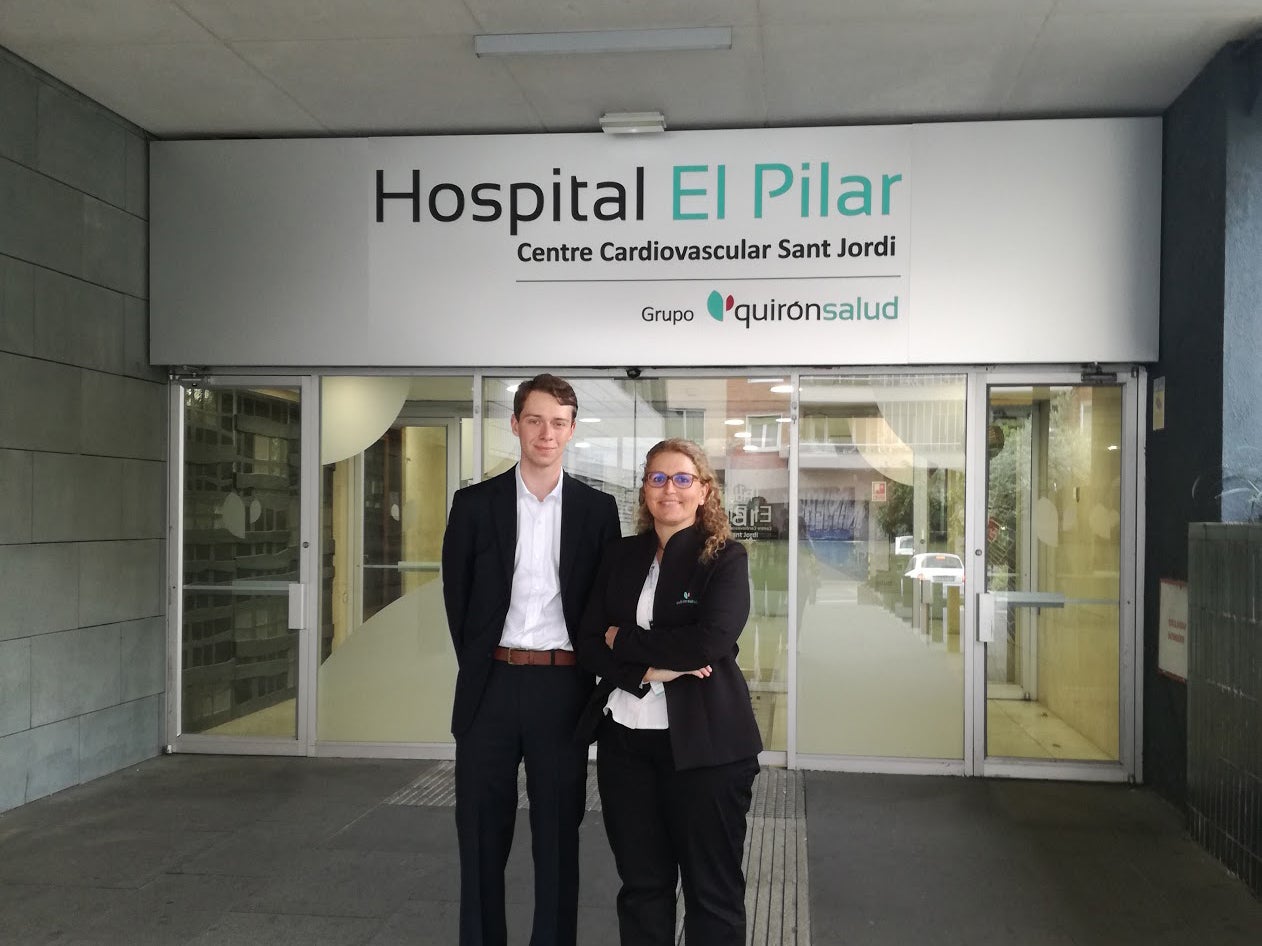
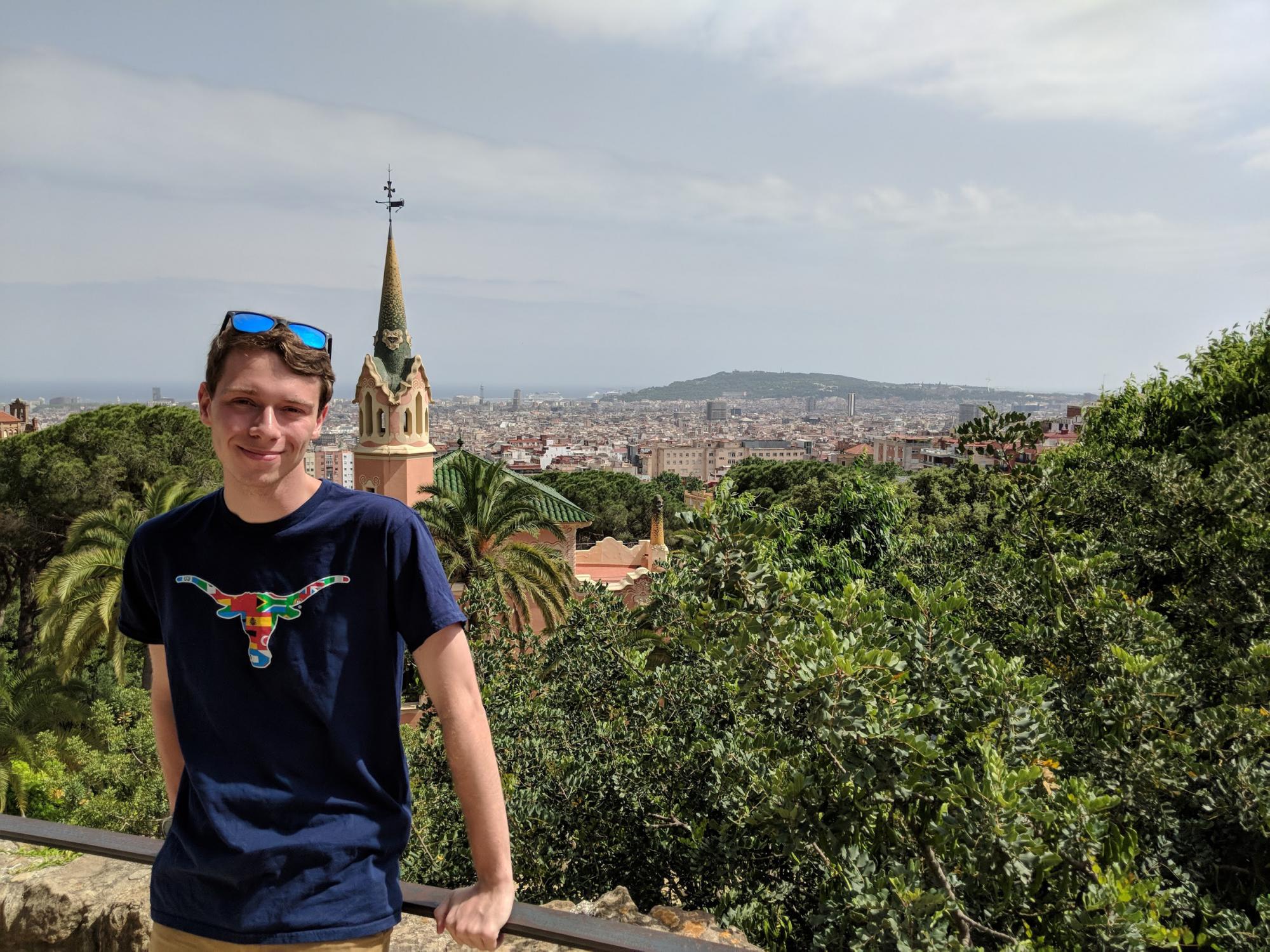
What was your job like? What did you learn?
There was a lot of downtimes, so they just let me go and shadow doctors throughout the hospital, which was really cool. But my actual job was to work with international patients that would come in. It's going to be really stressful if you get hospitalized while you're traveling abroad. We would help translate if there were issues, we’d help them with their insurance if they need to change their travel plans. We just provided that extra layer of support that you might need.
But it was also really cool to just see the Spanish healthcare system, which is supposed to be one of the best in the world. It's socialized, but they also have these private hospitals for people that do have insurance. So, you can kind of skip the long wait lines of the public healthcare system. It showed me both the benefits of the public healthcare system where everyone could just walk in and get free treatment but also having that extra layer of, there are still insurance companies, there is still this privatized healthcare system as well. It was the best of both worlds. It was really cool to see that as far as my career and medical aspirations go.
You mentioned going to Ecuador. What were you doing there?
I've been to Ecuador twice for different reasons. The first time was when I was in high school. I went with a program called Amigos de las Américas, and it's a volunteer program, but it's more of a cultural immersion program. As high schoolers, they'll go live with two people in a small community. I lived in a really rural mountain community in Ecuador, and we ran a summer camp for the kids there and try to teach them about hygiene, as well as just having fun. And then we also worked with the community project of our choice. For Ecuador, the theme was entrepreneurship. We worked with the community on starting a small microenterprise led by the youth and trying to convey entrepreneurial skills that they can use down the line to make money for the community, so the community can do various improvement projects, such as healthcare infrastructure.
The second time I went was two summers ago with a doctor shadowing program with Child Family Health International. I shadowed doctors throughout the capital city. I was in more of an urban environment. I had been more freedom and I took a lot of trips around. I got to see a lot more of the area. I lived with a host family for a month and spent the time rotating through different hospitals and clinics.
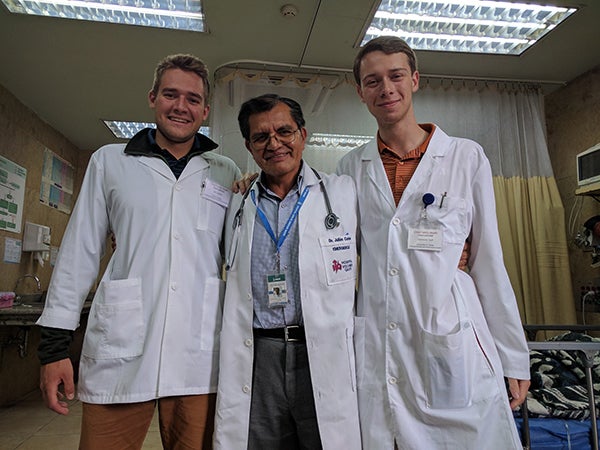
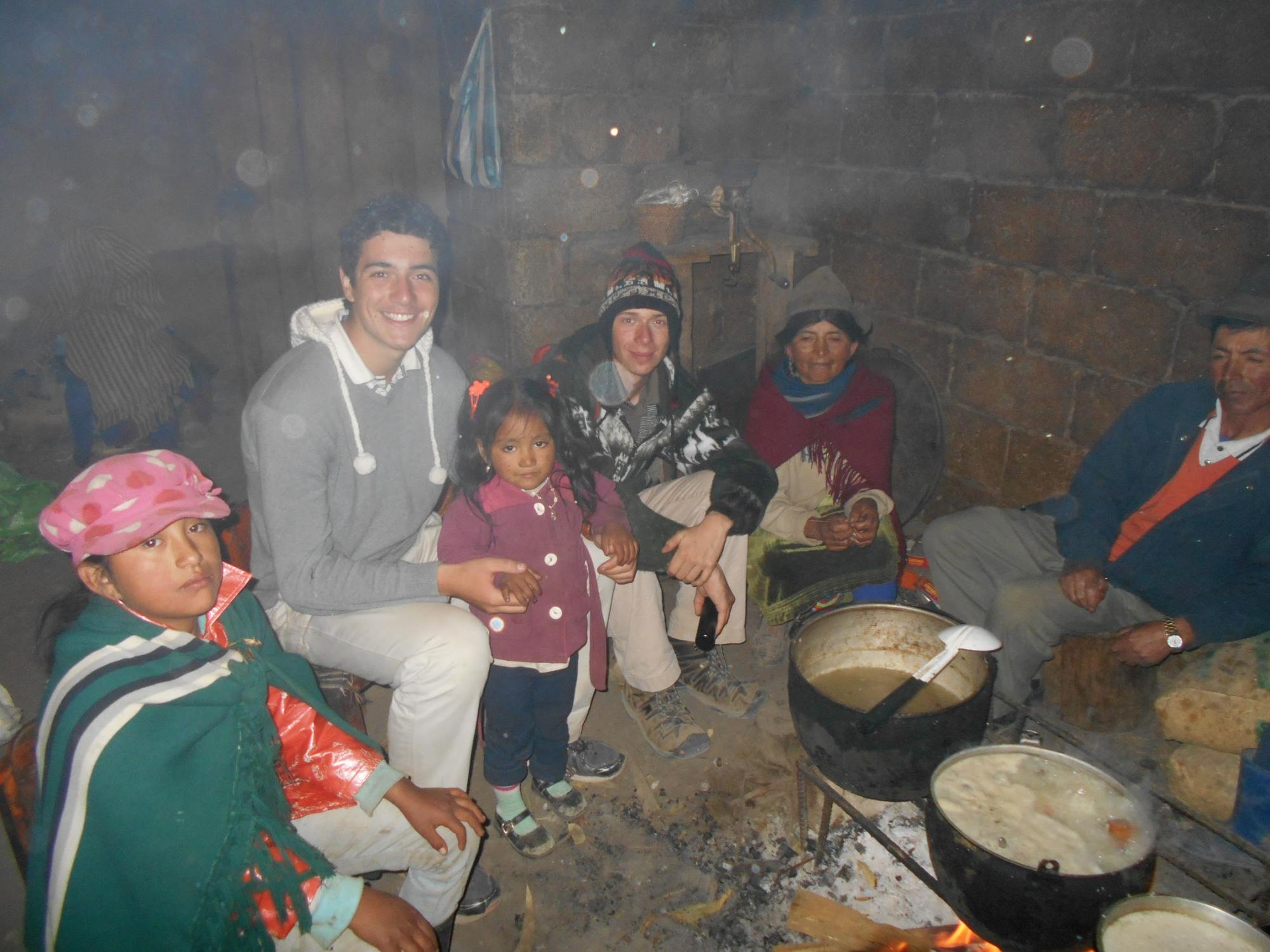
Are you interested in working abroad in the future?
Yes, potentially. I'm trying to get a Master's of Public Health while I'm in medical school. And maybe I would want to focus on global health, so I could have that education to be able to do work abroad. I would want to work in clinics abroad or do public health improvement projects abroad. I would like to go somewhere where I at least partially speak the language, so it has to be somewhere where I can use Spanish.
So how did your past experiences abroad help you in your process of applying to medical school?
All of my experiences abroad built a lot of independence and matured me in a way, especially those early ones. It was quite a crazy experience to go on when you're in high school. And definitely, when I came back from that, my parents said they saw my transition into a more mature and independent person as opposed to before I went. In all of my experiences in general, you're facing weird situations and challenges in a country you don't know very well, you don't speak the language fluently. You definitely have to learn problem-solving skills or find ways to get around those challenges in unique ways.
It also helped me so many times trying to explain it. People are always interested in, "Oh you went to Ecuador. Why did you do that? Oh, you went to Spain, why did you do that?" And kind of got me really comfortable with describing my experiences and describing my motivations behind things. That definitely helped me with transitioning my life experiences on to a two-page essay. I was able to convey that to people both on paper and then also in medical school interviews. It gave me things that made me stand out, like talking about living in a rural area of Ecuador or talking about the Spanish healthcare system, versus the Ecuadorian healthcare system, versus the American healthcare system. It gave me these avenues of expression that I think stood out to some medical schools or at least made them think, “Let's bring this guy in and we want to talk to him a bit more” and not just throw me on the discard pile.
How did you describe your experiences abroad in your interviews?
Every medical school interview is different because it depends on the interviewer. But they would ask questions like, tell me why do you want to be in medicine, tell me about a time where you were challenged, or tell me about a time where you were in the minority. And I fall back on those abroad experiences when I'm asked about those things because of one, I hope to transition it into a more interesting topic than just the cookie cutter answers. But also, it's really the one time I was in the minority. As a white middle-class person in the U.S., I'm not in the minority. But when I go abroad, I'm now the only person with my skin color. It should give you an appreciation for what people face when they're not in the majority.
But also, sometimes people would just ask me, “Tell me about Ecuador” or “tell me about Spain.” Literally, that was the first question someone asked me in one of my interviews. She just sat down and she was like, “Just tell me about Spain. That sounds really fun.” So, you can have a cool conversation with someone who's been to Spain too and just talk about your experiences there. A lot of the times that’s what they're looking for in medical school interviews. It's just “are you personable? Can you talk to someone? Can you have a conversation?” It's more about, “are you a culture fit for our school?”
So just having those travel experiences when you’re talking with someone, you could just have a conversation about something interesting, and 20 minutes, 30 minutes just goes by really quickly.
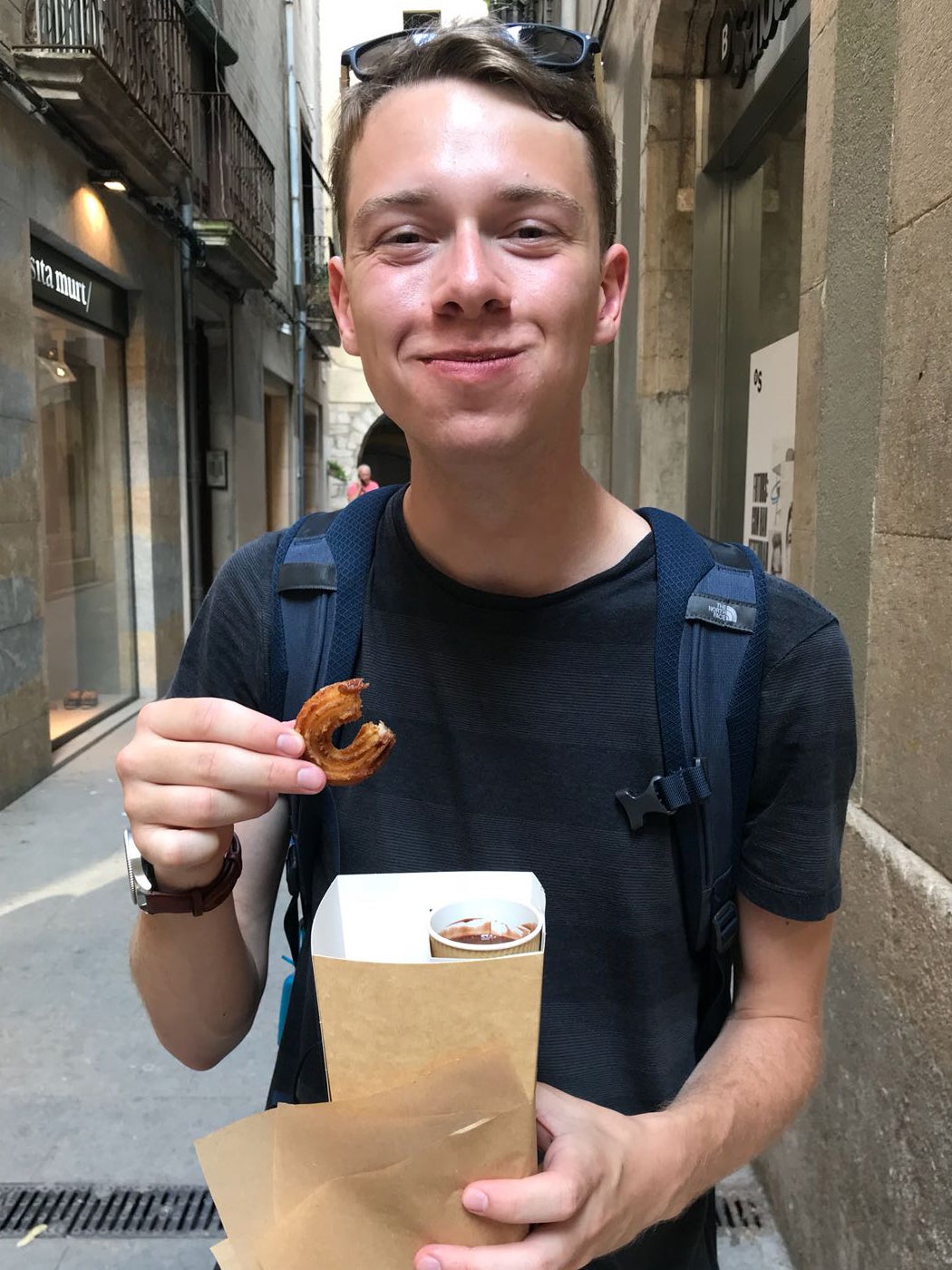
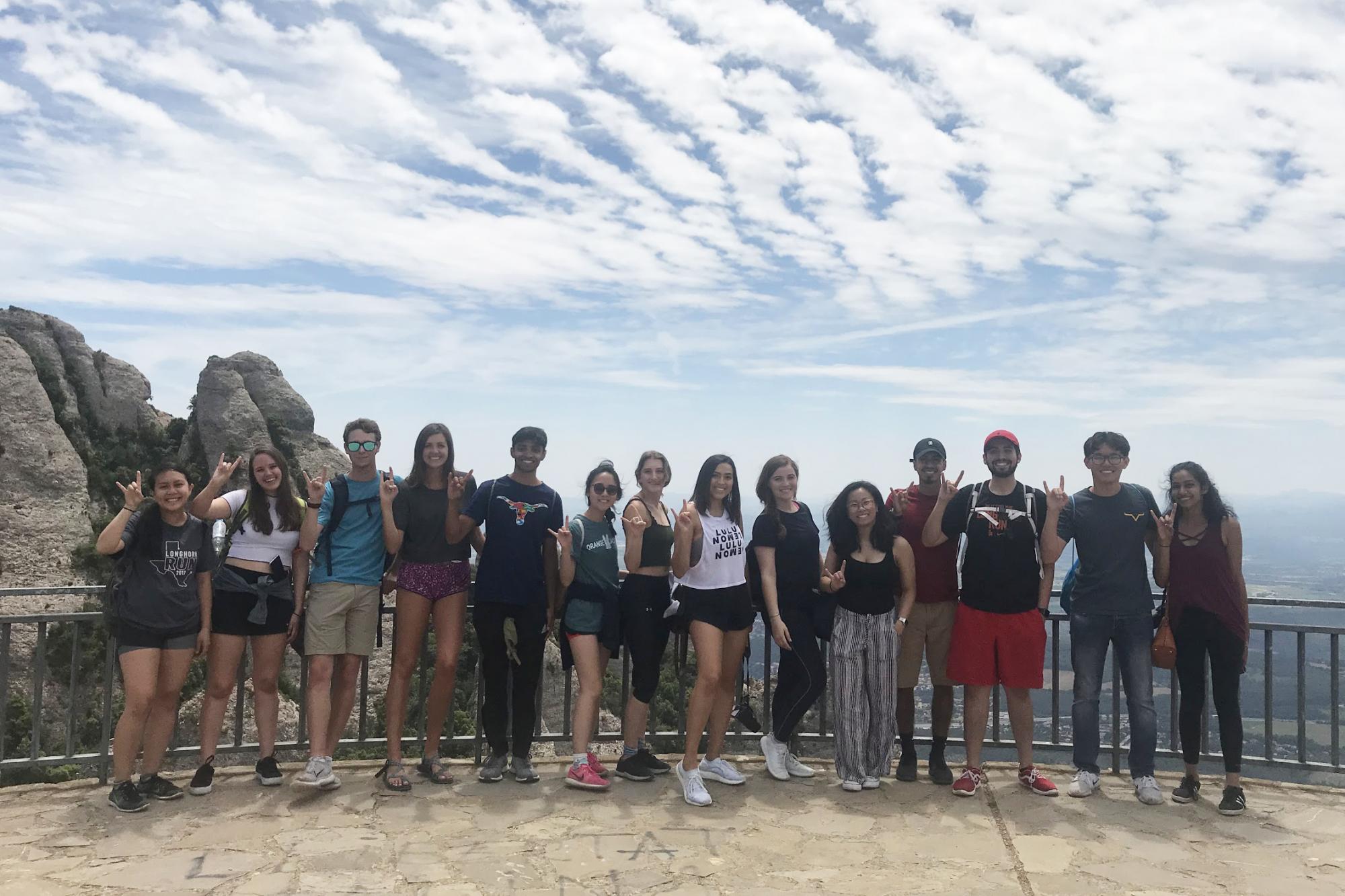
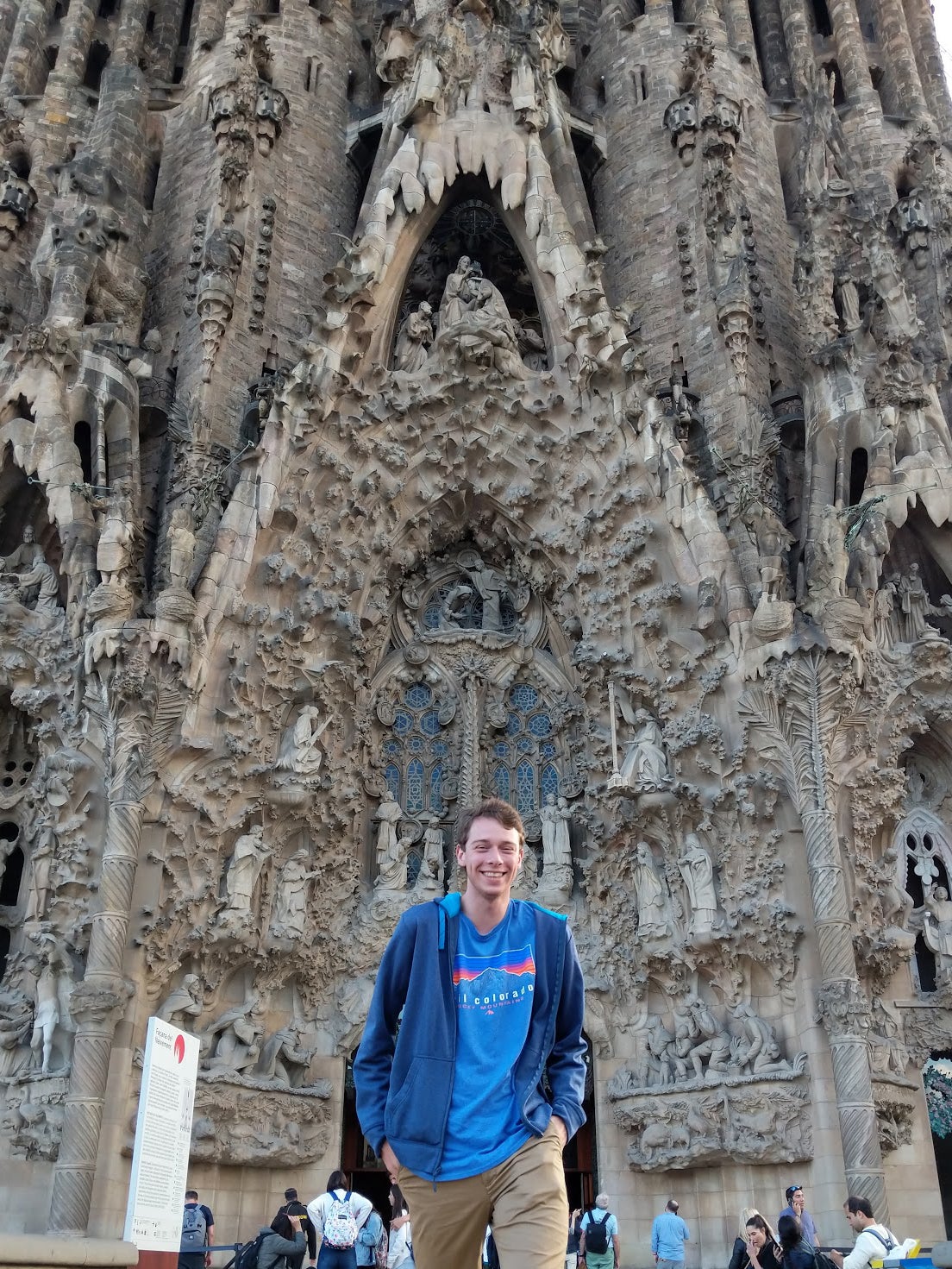
What would you say to convince a student to go on a study abroad?
I think a lot of students are afraid of it taking so much time out of their degree. Like, "I'm not going to be having an internship this summer because I'm going abroad or it's to make my course schedule really weird.” The classes you take and the grades you get, if it alters, and if you have to pack your schedule a little more one semester and your GPA drops by 0.05 grade points, having that abroad experience is going to more than makeup for it in any job application or any graduate school application. Having those unique experiences just immediately makes you stand out. Employers, schools and everyone will have a lot more interest in your experiences than your grades.
If you went abroad for a summer and didn't do an internship that summer, that's going to look just as impressive or more impressive to them as an internship. So, you're really not sacrificing anything. If anything, you're adding on and it's a lot of fun. Or you could just do an international internship as well.
"Stepping into someone else's shoes is always going to be the best way to see something from a different viewpoint, and you're doing that when you intern abroad, you're getting that different viewpoint. You're stepping into the shoes of a worker in Barcelona."
What do you think is the value of interning abroad?
Whether you intern abroad or here in the U.S., either way, you're going to get job experience. You're going to have something to put on your resume. You're just adding on an extra aspect to it, an extra level, when you intern abroad because you do get to work in a different culture, in a different environment. Even in the U.S., every company is going to be a bit different. And you need to learn how to work in different environments, even if it's a different culture of a company rather than a different culture of the country. So, I think practically, interning abroad gives you a bit more experience with that and a bit more understanding.
It's just like with understanding someone else's culture. Stepping into someone else's shoes is always going to be the best way to see something from a different viewpoint, and you're doing that when you intern abroad, you're getting that different viewpoint. You're stepping into the shoes of a worker in Barcelona. And then it's also going to be more interesting when you do put it on your resume. When employers are scanning down your resumes and they see Austin or Houston, that's not going to stand out. If they're scanning down, they see Barcelona or they see Shanghai, that's going to really pop out, and they're going to want to ask you about that experience. And you probably want to talk about that experience because it was really interesting for you.
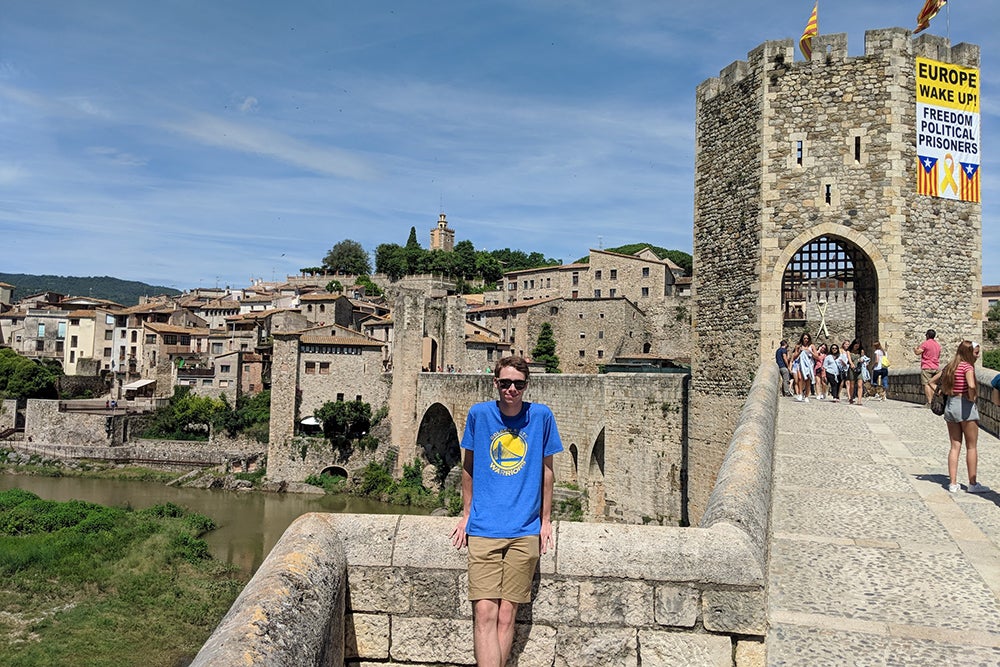
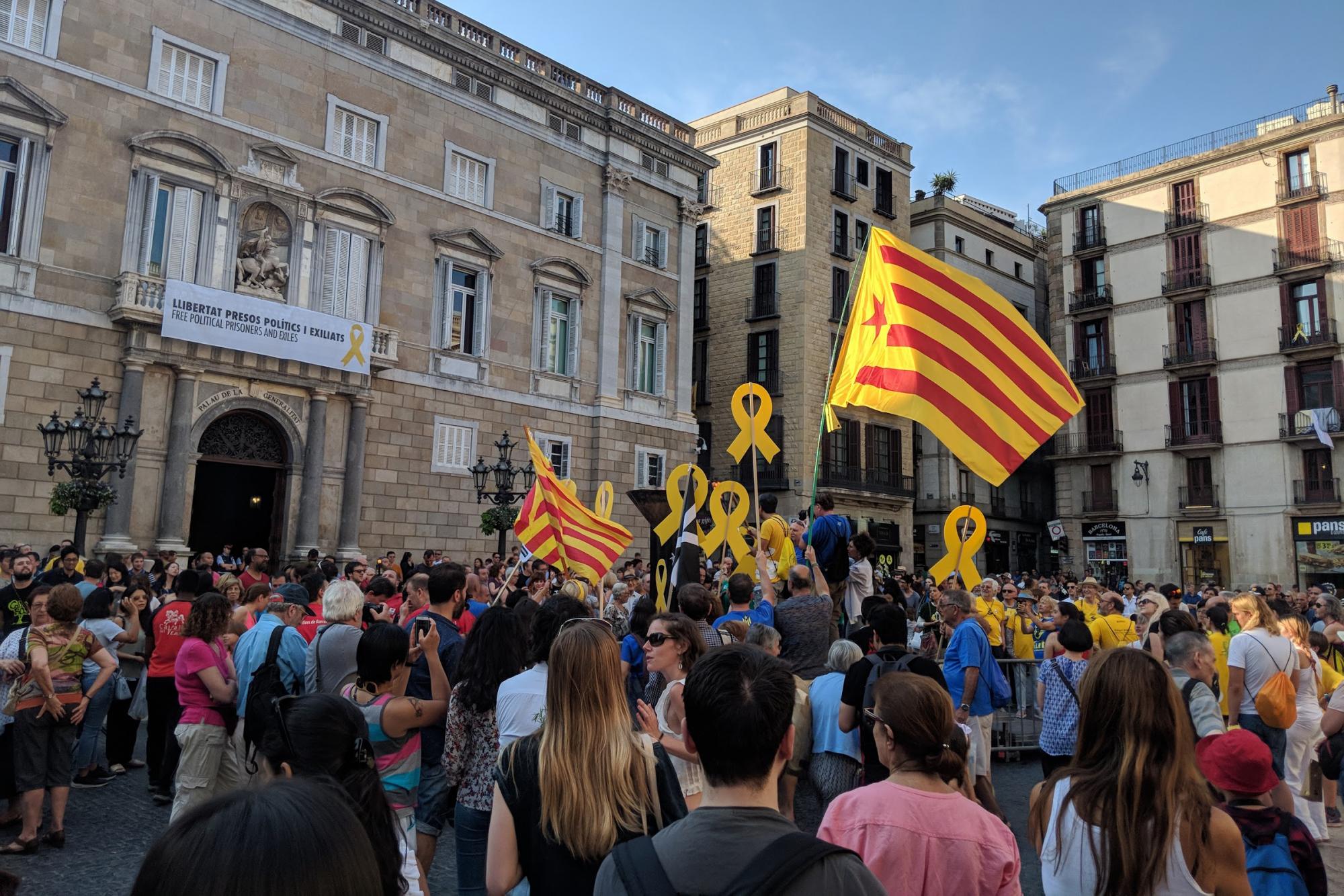
What are your goals now?
Besides trying to become a doctor, since I'm trying to do a Master’s of Public Health, I want to bridge that gap between treating a person one on one in the actual physiological basis of it but also looking at it from a more community-wide scale. What is their housing situation? What is the area that they live in? If they live in a more polluted area or they don't have easy access to the clinic, like they have to take the bus or walk 20 minutes to even get to a bus stop and then go see the clinic, they're probably not going to be able to do follow-ups as much. So, maybe we need to treat them a different way.
I want to bridge that gap between medicine on a personal level and public health on a more community-wide level. I think a lot of medical education is generally more focused on the person and they're trying to change that in general. But if I have another education in public health, that is something that I think will help me both as a doctor and also the work that I want to do later on. I do want to eventually maybe work with local governments and work with the hospital on trying to improve public health or doing public health research and projects to improve the health of the community as a whole and not just the health of a person.
Explore International Internships >>


